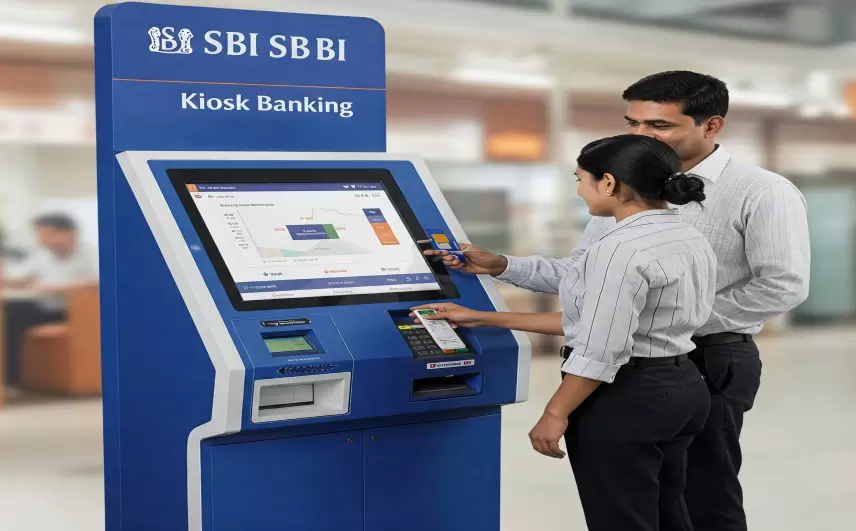SBI Kiosk Banking Meaning: Unlocking Financial Access in Rural India
The term SBI Kiosk Banking refers to a transformative banking model introduced by the State Bank of India (SBI) to extend financial services to rural and underserved regions. This blog explores the meaning of SBI Kiosk Banking, its comparison with traditional banking, its advantages and disadvantages, and answers to common questions, optimized for those searching for SBI Kiosk Banking Meaning.
What Does SBI Kiosk Banking Mean?
SBI Kiosk Banking is a low-cost, technology-driven banking solution that delivers essential financial services through Customer Service Points (CSPs). These kiosks, often set up in village shops or small booths, act as mini-bank branches, offering services like account opening, cash deposits, withdrawals, and fund transfers. By using biometric authentication, SBI Kiosk Banking ensures secure and accessible banking services, supporting the Reserve Bank of India’s (RBI) mission of financial inclusion.
How SBI Kiosk Banking Operates
At an SBI Kiosk, customers interact with a CSP operator who uses a digital device to process transactions. The process involves entering account details or scanning a biometric (e.g., fingerprint), after which the system verifies and completes the request. Key services include:
- Zero-balance savings account creation
- Daily deposits and withdrawals (up to ₹10,000)
- Balance inquiries and fund transfers
- Micro-insurance and small loan applications
This streamlined approach makes SBI Kiosk Banking ideal for rural communities far from traditional banks.
Comparison: SBI Kiosk Banking vs. Traditional Banking
To grasp the significance of SBI Kiosk Banking, here’s how it stacks up against traditional banking:
| Aspect |
SBI Kiosk Banking |
Traditional Banking |
| Location |
Available in rural areas via CSPs |
Mostly urban or semi-urban bank branches |
| Hours of Operation |
Flexible, often extended hours |
Fixed hours (e.g., 10 AM to 4 PM) |
| Transaction Limits |
₹10,000 daily; ₹50,000 max balance |
Higher limits or no restrictions |
| Cost of Services |
Free for basic transactions |
May include fees for low balance or ATM use |
| Technology |
Biometric and digital-based |
Mix of digital and paper-based processes |
While traditional banking provides broader services, SBI Kiosk Banking shines in rural banking by prioritizing accessibility and affordability.
Advantages of SBI Kiosk Banking
SBI Kiosk Banking offers several benefits, making it a cornerstone of financial inclusion:
- Accessibility: Kiosks are located in villages, reducing travel to distant bank branches.
- Cost-Free Services: No charges for basic transactions like deposits or withdrawals.
- Flexible Timing: CSPs often operate beyond regular banking hours, suiting varied schedules.
- Zero-Balance Accounts: No minimum balance requirement, ideal for low-income users.
- Secure Transactions: Biometric authentication ensures safety, even for non-literate customers.
- Economic Empowerment: Enables rural residents to save and transact, fostering financial independence.
Disadvantages of SBI Kiosk Banking
Despite its strengths, SBI Kiosk Banking has some drawbacks:
- Transaction Caps: Limited to ₹10,000 daily transactions and ₹50,000 account balance.
- Connectivity Issues: Rural areas with poor internet may face service disruptions.
- Limited Service Scope: Lacks advanced services like large loans or investment options.
- Agent Reliability: Risk of fraud if kiosks are not SBI-authorized.
- Equipment Maintenance: Faulty kiosk devices can delay transactions.
- User Adaptation: Elderly or tech-averse users may struggle with digital interfaces.
The Role of SBI Kiosk Banking in Financial Inclusion
SBI Kiosk Banking addresses the banking gap in rural India, where traditional branches are scarce. By establishing CSPs in local communities, SBI empowers residents to access banking services without long journeys. For instance, a small shopkeeper can deposit daily earnings or transfer funds to suppliers directly from a nearby kiosk, enhancing economic participation.
Conclusion
Understanding the SBI Kiosk Banking meaning reveals its vital role in making banking accessible to rural India. By offering convenient, secure, and cost-effective banking services, it bridges the gap left by traditional banking, despite limitations like transaction caps. With its focus on financial inclusion, SBI Kiosk Banking empowers communities to engage in the financial ecosystem. For more insights, explore the FAQs or visit an SBI Kiosk near you.

